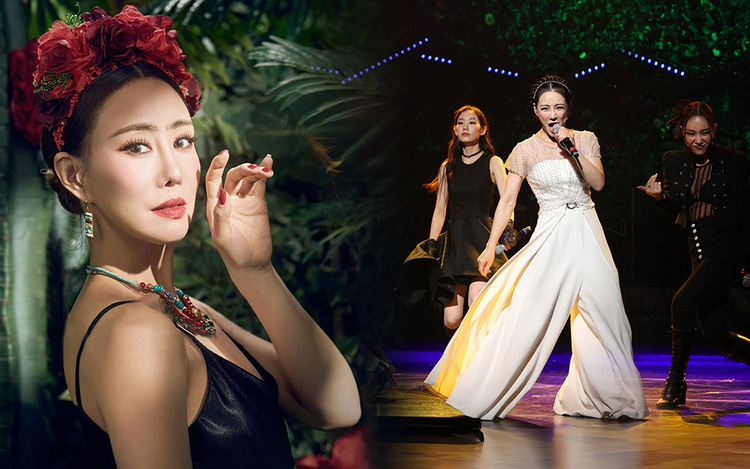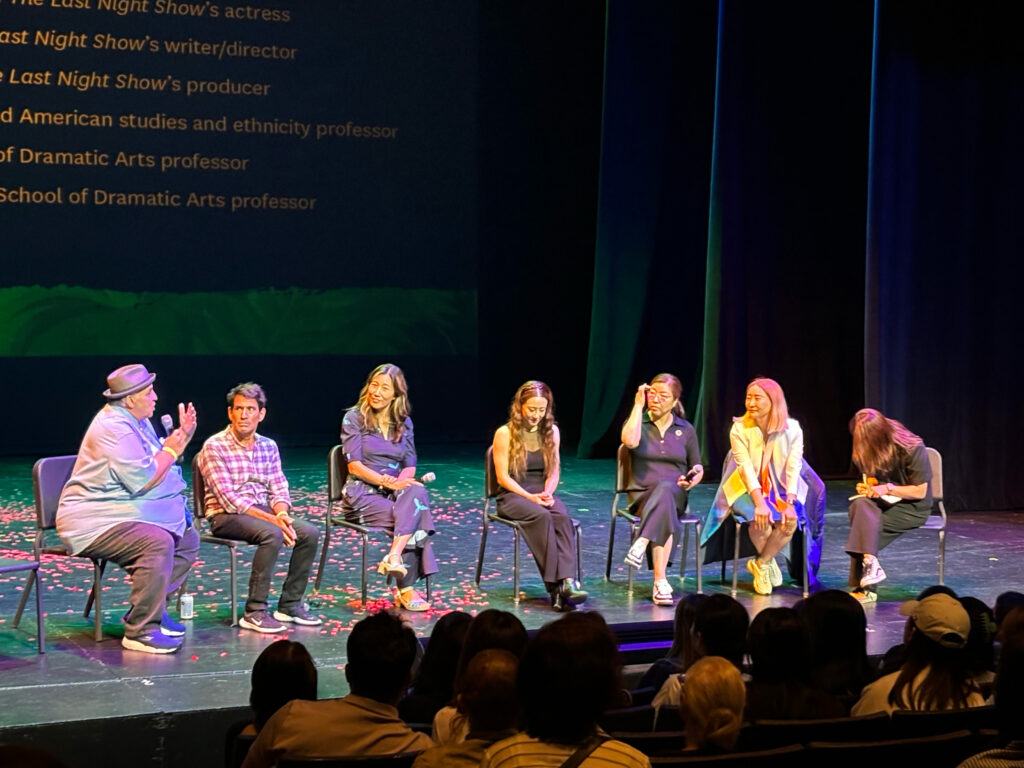
South Korea's EMK performed their hit musical about the life of Frida Kahlo at USC's Bing Theatre in September. Photos courtesy of EMK.
There are nearly 6,000 miles between Seoul and the University of Southern California. But on Friday night EMK, one of South Korea’s preeminent musical theatre companies, bridged both culture and distance with its performance of Frida: The Last Night Show.
EMK is one of the biggest musical theatre production companies in South Korea, and its all-female musical about the life of legendary artist Frida Kahlo performed to sold out audiences in its first season in Seoul. The USC presentation was made possible by the USC School of Dramatic Arts, USC Visions and Voices and the Korean Cultural Center, Los Angeles, and performed to a packed and enthusiastic crowd at the Bing Theatre.
“I think this signals a very important moment at our School, to acknowledge the Korean and Korean-American community,” said Professor of Dramatic Writing and Chair of the MFA in Dramatic Writing program Luis Alfaro. “The role that it’s taking shape in Los Angeles, not only here but into our future.”
Frida: The Last Night Show, which was modified from its original version to travel overseas and be performed at USC’s Bing Theatre, featured a four-woman ensemble led by Sohyang Sophie Kim, a musical theatre star in Korea. Members of the ensemble filled the stage with larger-than-life musical numbers, singing and dancing, all while interacting with members of the audience between scenes. The musical was performed largely in Korean, with English supertitles projected onto screens for the non-Korean speakers in the audience.

A historic moment
The performance was followed by a panel moderated by Professor Alfaro, and featuring Frida writer/director Jung Hwa Choo, producer Sophy Jiwon Kim and actress Sohyang Sophie Kim alongside USC School of Dramatic Arts Professor Esther K. Chae and USC Dornsife Professor of English and American Studies and Ethnicity David Román. The panel focused on the portrayal of art across cultures, and specifically discussed the complicated process of portraying a legendary Mexican artist’s life with Korean performers.
Professor Alfaro, who lives in L.A.’s Koreatown, where Mexican and Korean culture come into contact every day, spoke about his initial skepticism and ultimate delight at the Mexican icon’s life being adapted by a Korean musical theatre company.
“I’m Chicano. Frida, for us, is the equivalent of a saint. Frida is almost a religious figure in Mexican culture,” he said. “But then something very beautiful happened. The musical makes us larger than life. It allows us to see each other.”
Sohyang Sophie Kim, speaking through a translator, spoke about the process of portraying an iconic artist from another culture.
“I’m originally a big fan of Frida Kahlo herself,” Kim said. “Like Frida, I was sick in bed in the hospital for six months, and I lost a lot, just like she had. So there were many points where I felt very passionate about her life.”
Kim focused on the universality of Kahlo’s endurance, and the power of turning pain into something beautiful.
“Everyone goes through pain in life,” she said. “Through this stage, I wanted to give everyone some sort of healing and power to overcome whatever they may be going through.”
Professor Román was surprised to learn about Kahlo’s popularity in Korea, and asked about the challenges of adapting her life to the stage in a very different culture.
“In Korea, everyone knows Frida, and she receives a lot of love,” said writer/director Jung Hwa Choo. “Though we may not know every specific of her life, we do know quite a lot about her. Just like how dark and light will always need one another and are two sides of the same coin, because she was in so much pain she was also able to see so much joy in her life.”
The speakers, performers and the crowd had a sense of the historic nature of the performance, which bridged cultures, languages and distance for an evening that became a celebration of universality and art.
“I want to take a moment to acknowledge how extraordinarily lucky we are to be the first U.S. audience for this performance,” said Professor Román.
Professor Alfaro agreed, pointing to the rising influence of South Korean culture, food and art in Los Angeles and beyond.
“This is historic,” said Professor Alfaro. “This would not have happened ten years ago.”